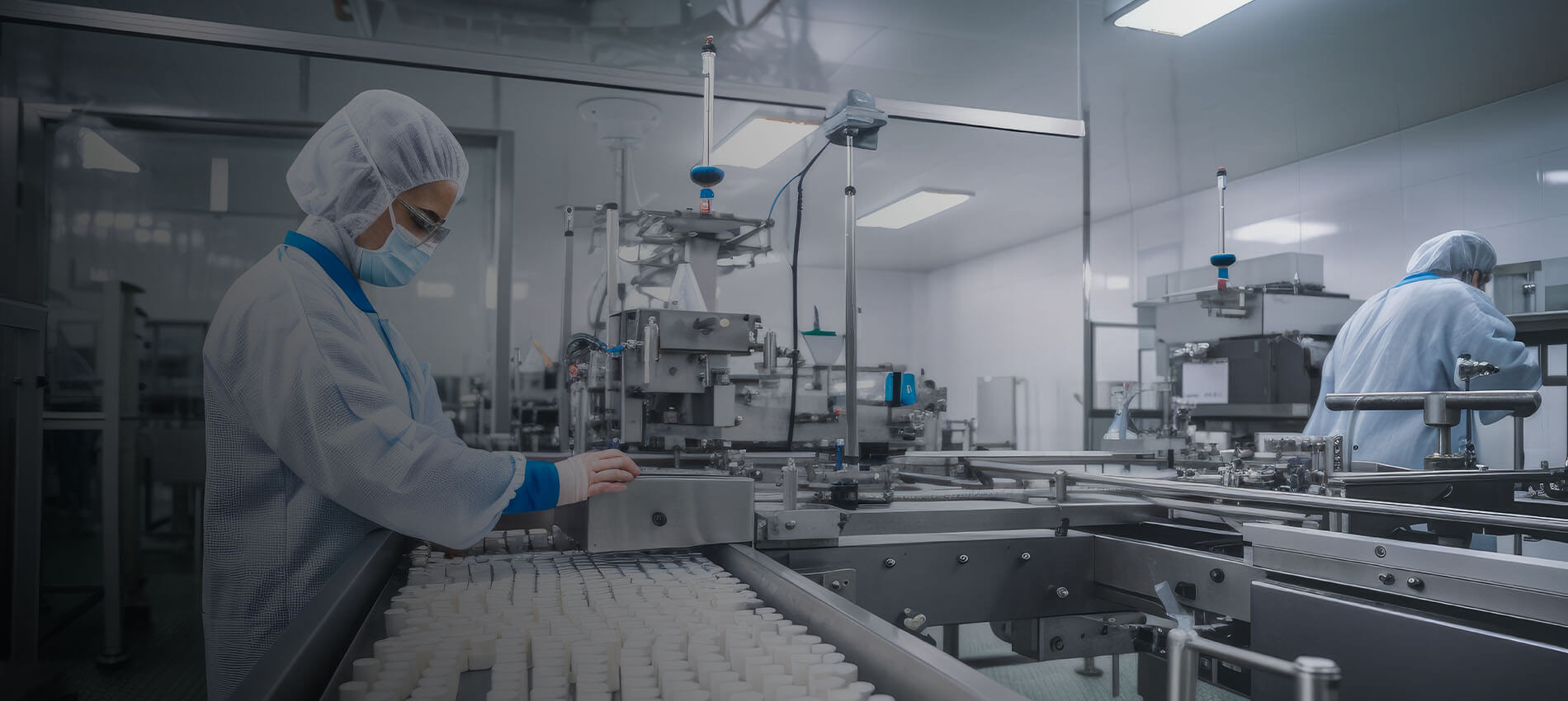RPA is a technology that uses bots to automate repetitive, rule-based tasks traditionally performed by humans. These tasks include extracting data from documents, entering data into applications, processing transactions and responding to simple queries. RPA bots mimic human actions within digital environments, navigating systems and inputting information to complete workflows without human intervention. The goal of RPA is to increase efficiency, reduce errors and free up human workers to focus on more complex activities. What’s important when it comes to enterprises and companies that are scaling up – RPA is also highly scalable.

Robotic Process Automation in the pharmaceutical industry
Are you struggling with inefficiencies in your pharmaceutical manufacturing or distribution processes? Have you considered how automation might transform your operations and free up your staff to focus on more strategic initiatives? Robotic Process Automation is the solution you’re looking for. In this article, we’ll explore the role of RPA in the pharmaceutical industry so you can see why it is a strategic asset for this industry.
Are you struggling with inefficiencies in your pharmaceutical manufacturing or distribution processes? Have you considered how automation might transform your operations and free up your staff to focus on more strategic initiatives? Robotic Process Automation is the solution you’re looking for. In this article, we’ll explore the role of RPA in the pharmaceutical industry so you can see why it is a strategic asset for this industry.
What is Robotic Process Automation?
What is the role of bots in pharmaceutical manufacturing?
Bots play a crucial role in pharmaceutical manufacturing by streamlining production processes, enhancing quality control and ensuring compliance with regulatory standards. In production, RPA automates repetitive tasks such as data entry, batch record management and inventory tracking, significantly reducing the time and effort required for these activities while minimizing the risk of human error. By handling routine processes, RPA allows pharmaceutical companies to maintain consistent production speeds and improve overall efficiency. Additionally, RPA enhances quality control by automating the collection and analysis of data from various stages of the manufacturing process, ensuring that products meet stringent quality standards. It also facilitates compliance by systematically managing and documenting every step of the production process, making it easier to adhere to regulatory requirements and pass audits. Overall, RPA not only optimizes production workflows but also strengthens the reliability and regulatory compliance of pharmaceutical manufacturing operations.
RPA in pharmaceutical logistics and distribution
Robotic Process Automation is revolutionizing pharmaceutical logistics and distribution by optimizing supply chain management and automating inventory management. In supply chain management, bots enhance efficiency by automating tasks such as order processing, shipment tracking and supplier coordination, which ensures timely delivery and reduces bottlenecks. This automation enables real-time monitoring and management of the supply chain, allowing for quicker responses to changes in demand and supply conditions. In inventory management, bots automate tracking and updating of inventory levels, ensuring accurate and up-to-date records. This reduces the risk of stockouts or overstock situations, maintaining an optimal inventory balance. Bots also facilitate the integration of data from various sources, providing comprehensive visibility into inventory status across different locations. By streamlining these processes, we not only improve operational efficiency but also enhance the accuracy and reliability of logistics and distribution in the pharmaceutical industry.
RPA for regulatory compliance and documentation
Bots significantly enhance regulatory compliance and documentation in the pharmaceutical industry by automating documentation processes, ensuring adherence to industry regulations and improving audit and reporting capabilities. RPA can automatically generate, update and store critical documents, reducing the manual effort and errors associated with paperwork. This automation ensures that all documentation is accurate and accessible, which is crucial for meeting stringent regulatory requirements. Bots also continuously monitor compliance by systematically tracking and recording every step of the manufacturing and distribution processes, making it easier to adhere to industry standards. During audits, bots provide detailed, real-time reports and comprehensive audit trails, facilitating smoother and more efficient audit processes. The use of RPA not only ensures regulatory compliance and enhances data integrity but also frees up valuable human resources to focus on more strategic tasks. This leads to improved operational efficiency and regulatory adherence in the pharmaceutical sector.
The strategic importance of bots in pharmaceutical companies
The strategic importance of Robotic Process Automation in the pharmaceutical industry cannot be overstated. By automating repetitive, time-consuming tasks, bots enable pharmaceutical companies to enhance efficiency, reduce costs and improve accuracy across various processes, from manufacturing to logistics and compliance. The implementation of bots leads to faster production cycles, streamlined supply chain operations and rigorous adherence to regulatory standards, all of which are critical in a highly regulated and competitive industry. Furthermore, RPA allows skilled employees to focus on more complex and value-added activities, fostering innovation and continuous improvement. Companies that adopt RPA will be better positioned to respond to market demands, regulatory changes and competitive pressures.

